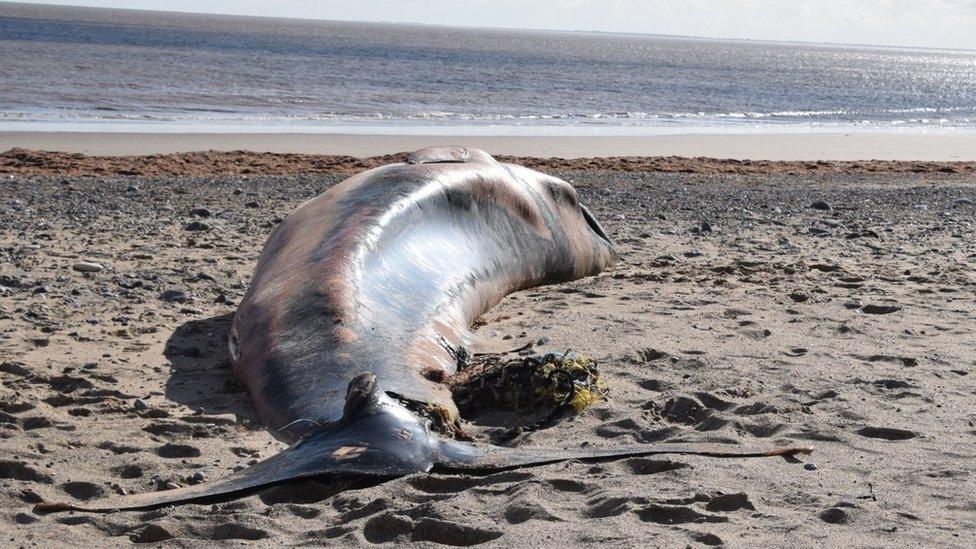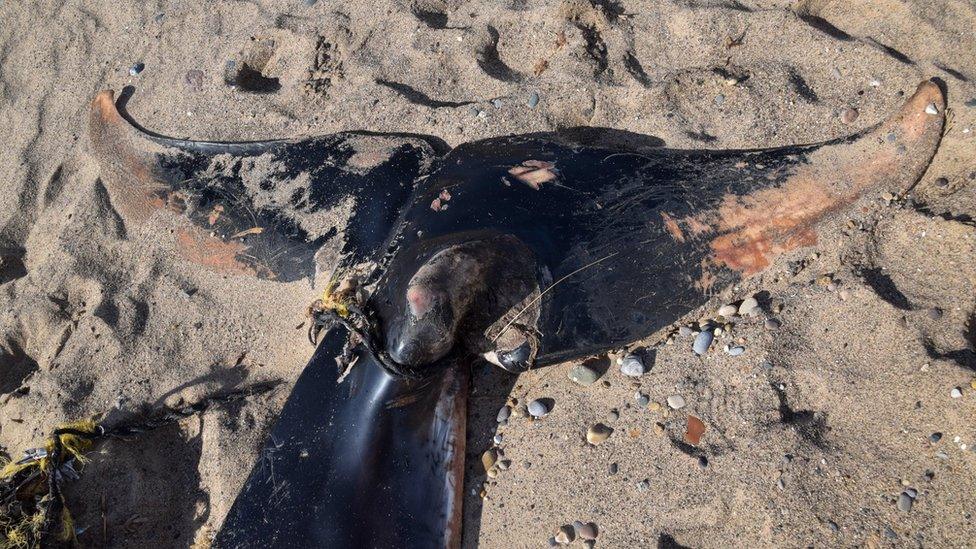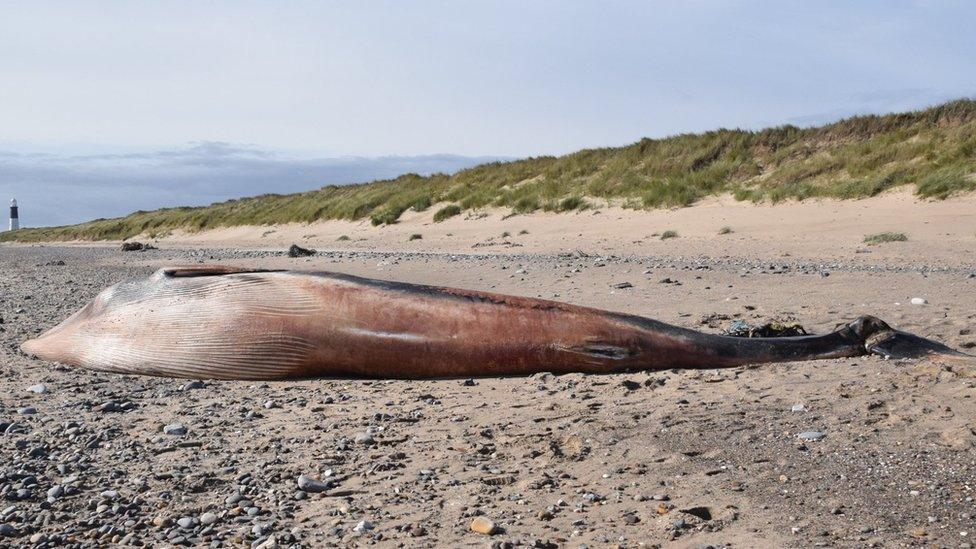Whale died entangled in rope and plastic on Spurn beach
- Published

The minke whale, believed to be a young female, was spotted washed up at Spurn on Tuesday
A 25ft (7.5m) minke whale was found dead with its tail entangled in rope and plastic debris on a beach.
The animal, believed to be a young female, was spotted washed up at Spurn in East Yorkshire on Tuesday.
The Cetacean Strandings Investigation Programme (CSIP) said the cause of death was "consistent with a chronic entanglement" in plastic material.
Rob Deaville, from CSIP, said: "It's a really sad case. I've never seen one as bad as this."
The investigator said the animal's tail had been "partially severed by the entanglement material from floating debris", which included a mixture of rope, packaging "and other plastic material".
Mr Deaville said the entanglement had inhabited the whale's ability to dive and feed, ultimately leading to starvation.

The whale's tail was entangled in plastic debris, which "inhabited the animal's ability to feed"
"Unfortunately entanglement is a significant problem for some species of whales," he said.
"It's really sad to think that 4kg of plastic material could cause such a profound welfare issue in this whale.
"This is probably the thinnest minke whale I've seen in the 20 years I've been doing this."
Mr Deaville believes the whale may have suffered a "prolonged death".

The 25ft-long mammal is the "thinnest whale I've seen", Mr Deaville said
In a tweet, external, Bethan Clyne, who was at the beach while CSIP were investigating, said it was a "grim reality of a horrific end" for the animal.
"A heartbreaking circumstance that awfully happens too much due to man made threats," she said.
Ms Clyne said the whale could not be removed from the beach and investigators "collected samples, this could provide them with information on causes of death, disease, contaminants, infections, diet and general death".
A YWT spokeswoman said she was not sure whether the mammal was "alive when it originally washed up" on the beach.
"The decision has been made to leave the whale in situ to decompose naturally as it washed up in a fairly inaccessible and isolated location," she added.

Follow BBC East Yorkshire and Lincolnshire on Facebook, external, Twitter, external, and Instagram, external. Send your story ideas to yorkslincs.news@bbc.co.uk, external.